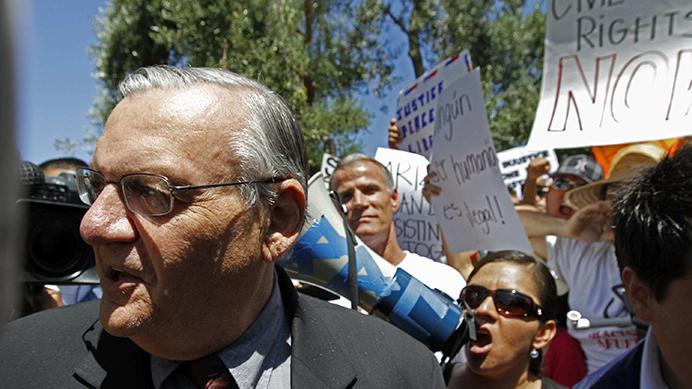President Trump is obviously in the headlines a lot, and frankly, I’ve just learned to ignore most of it. This past weekend, however, there was a headline that caught my eye: His pardon of former Arizona Sheriff Joe Arpaio flooded social media and news outlets with outrage. To me, no matter how you look at it, there is just no reason Arpaio deserved a pardon.
In 2011, Arpaio’s office was accused of racially profiling Latinos, and in 2013, he had orders from a federal judge to change his ways.
It wasn’t until 2016 that he was referred for prosecution for disregarding the court order. This year, he was found to be in contempt of the court and could have faced up to six months of jail time. He was supposed to be sentenced later this year — that was, until Trump pardoned him.
In a press conference, the president defended pardoning Arpaio by claiming, “He was treated unfairly.” This leaves me very confused, because from the lawsuit to the court order to the conviction, the law wasn’t manipulated against Arpaio. So is it only unfair when it hurts the president or his supporters?
Even if you believe Arpaio really didn’t understand the court order (which is what his defense was), the number of times he’s had run-ins with law, paired with how he’s been criticized of operating his county jails — I think it’s fair to say the maximum sentence wouldn’t have been the worse thing to happen. Arpaio was a sheriff, and his job was to enforce the law, not defy it.
As upset as we may be, what the president did was completely legal. Paul Gowder, a University of Iowa professor of law, said, “It’s not as if the president needs to have a legal reason to issue a pardon. In principle, anyone convicted of a federal crime can be pardoned by the president. However, there are traditions that have been established in the executive branch by prior presidents.”
The traditions Gowder referred to are the Department of Justice screening and recommending cases for pardons. It seems that Trump completely bypassed that. People who have trained in and studied law were not able to advise the president on a legal matter. This blows my mind, considering the president himself has no prior legal or political experience.
In an effort to try to wrap my mind around this pardon, I should mention that Gowder outlined two types of pardons. “So category one, a simple act of mercy. The second kind of pardon is really conventional and understood, if there was a genuine policy disagreement,” he said.
Let’s say Trump gave the pardon because he believes Arpaio’s policies were in line with his own. Arpaio’s crime was disobeying the court; that’s not a policy you can disagree with or change. The only way this would fit the second category was if it was a conviction of racial profiling to crack down on illegal immigration.
There’s no debating Arpaio’s guilt. If his case had been rigged or had any shady circumstances, the pardon would be justified. But that’s not what happened. Simply believing it was unfair is not enough justification.



